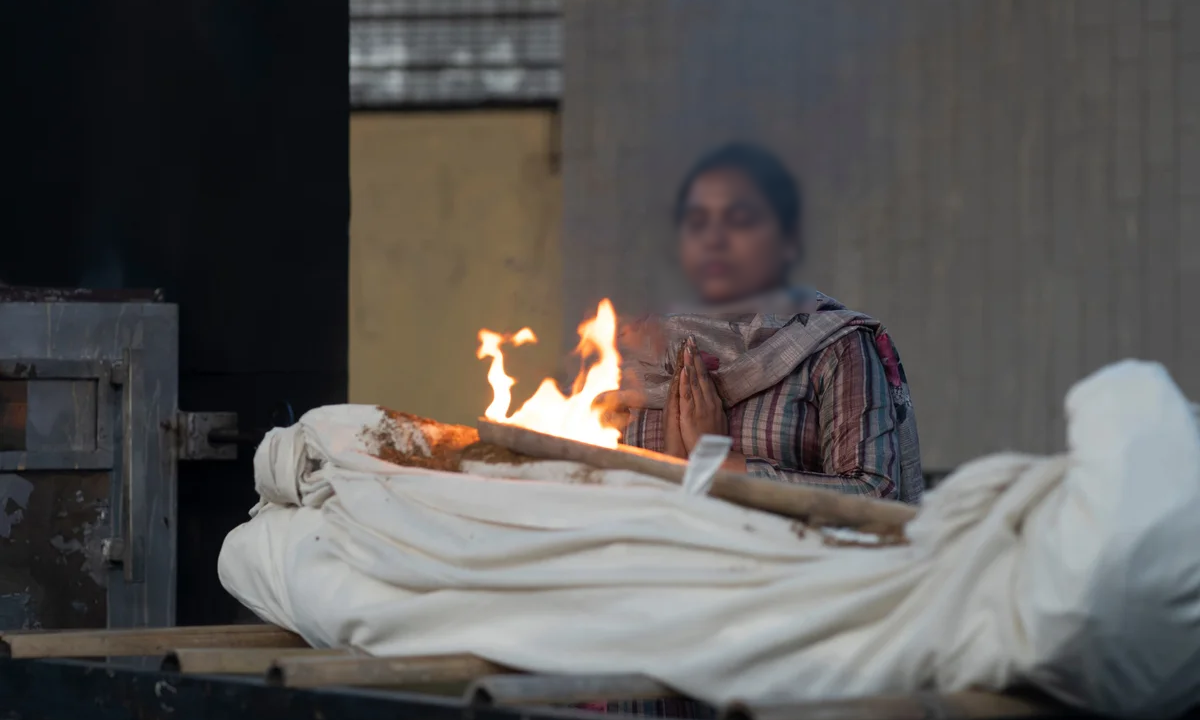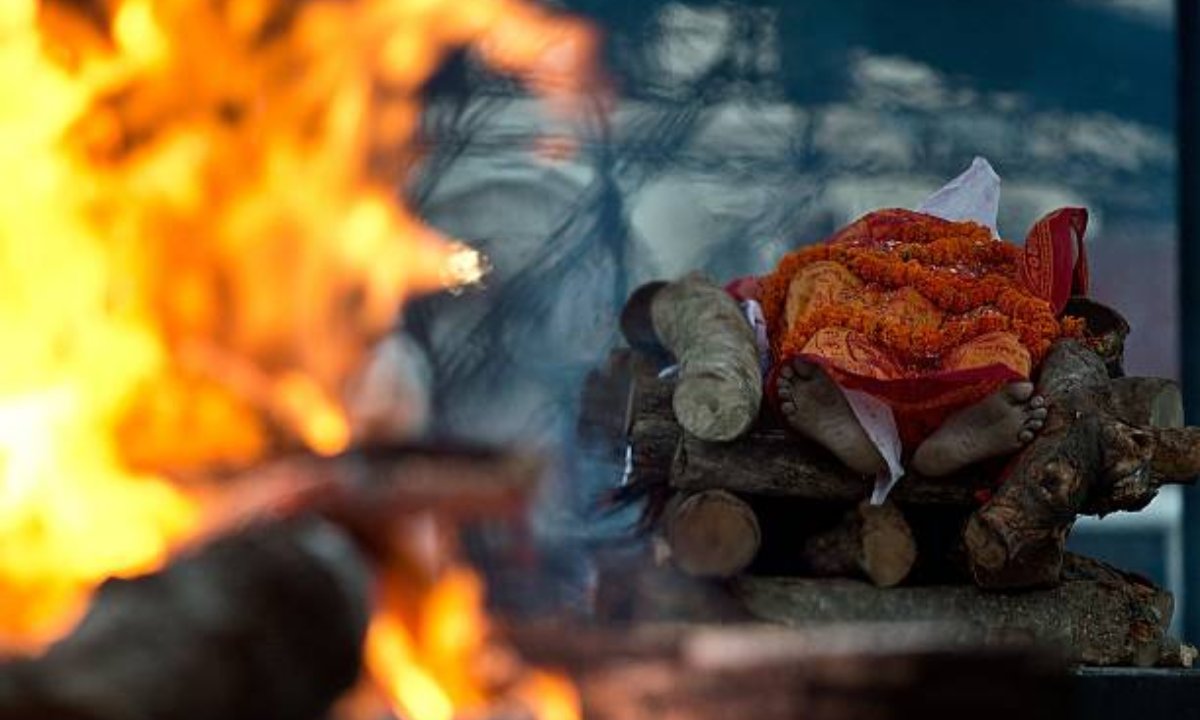Among Hindu death traditions, cremation holds a central position as an essential process governing the death rituals. According to Hindu belief, the funeral process frees the spiritual essence of a person so it may progress in successive lifetimes. A long-standing religious argument surrounds the exclusion of women from cremation grounds since this ritual maintains sacred importance.
The article highlights two essential elements regarding why women are not allowed in shamshan. These traditional practices maintain their importance across different regions even though societal changes have taken place because Pune, along with other regions and cities, continues to carry such customs forward.
We will also examine Hindu shamshan ghat customs, starting from historical traditions to current societal attitudes.
Historical Roots of Women’s Exclusion
The practice of barring women from cremation grounds constitutes an established tradition. Hindu traditional customs from ancient times introduced this practice to human society. During the patriarchal domination of social structures, strong norms were created to shelter women from possible physical and emotional distress.
In Vedic traditions, it is widely known that life-giving women should avoid death-related responsibilities because they carry the essence of nurturing and creation. Several well-known explanations define the basis of this belief.
1. Emotional Sensitivity
One of the primary explanations given is that women are emotional and sensitive compared to men. Rituals at the Hindu Shamshan Ghat involve witnessing the burning of a loved one’s body, which can be emotionally taxing. This belief seems to stem from the concern that some people feel women may not have the mental strength to cope with the emotional and spiritual challenges of cremation procedures. It’s important to approach this with understanding, as it touches on deeply personal beliefs and values related to spiritual cleanliness and the grieving process.
2. Perceived Physical Vulnerability
The primitive medical knowledge of the past triggered society to view women as weak physically throughout their menstrual cycle as well as the pregnancy phase. Even though arguments about menstrual purity persist in modern society, most Hindus traditionally view menstruation as an impure condition. Traditionally, women received limited access to cremation sites because these spaces were classified as impure regions due to the presence of mortal remains.
3. Protection from Negative Energies
A Hindu death experience links to numerous spiritual and cosmic elements that control the process. The cremation site serves as an area where many people think ghosts and spirits, together with negative energies, reside. Throughout history, women received a greater sensitivity to spiritual and imaginative forces, which led to their social exclusion from restricted areas.
Religious and Spiritual Interpretations
Within Hindu religious texts, strong evidence connects the religious laws that restrict female presence at cremation sites. The religious texts indicate that the son, together with male family members, bears responsibility for carrying out the last death rites.
The ceremonial act of lighting the funeral pyre serves to free the departed spirit according to belief, making it necessary for men to fulfill this role throughout the funeral procedure. The removal of women from funeral ceremonies did not reflect doubts about their abilities because solemnity remained a key priority in maintaining ritual purity.
Contemporary experts point out that these traditional observances emerged in periods when social organizations used different arrangements. Various scholars question how religious texts were interpreted by patriarchal forces instead of following true spiritual beliefs.
Cultural Shifts and Modern-Day Practices

Society within the urban areas of Pune and numerous other cities has experienced a shift in cultural values in contemporary times. The changes in gender equality, together with educational opportunities and modern viewpoints, have revolutionized societal reactions toward traditional methods at cremation grounds. Traditional customs still guide some people, while a rising number of individuals allow women to participate in final ceremonies.
Cremation Services in Pune: A New Perspective
The service providers who offer cremation services in Pune now shift their practices according to changing social preferences. Modern values and inclusivity find expression through numerous organizations that allow women to participate in funeral ceremonies. Traditions surrounding funeral rituals evolve in India as more and more daughters, wives, and sisters take on the responsibility alongside the man.
People who follow departed loved ones’ wishes desire their daughter to fulfill the pyre-lighting responsibility, and thus, they support her participation. Modern cities serve as evidence of social progress because citizens now challenge the reason behind prohibiting women from attending funeral ceremonies.
Significance of Revisiting Traditions
The practice of shamshan prohibition against women requires an acknowledgment of traditional beliefs as cultural frameworks that organize community systems. As urban societies transform, their principles must be assessed for both necessity and fairness.
Breaking the Barrier of Exclusion
Numerous women during contemporary times have started to demand involvement in cremation rituals at Hindu Shamshan ghats. Various discussions currently explore the part women should play in religious customs and traditional rituals. The power of education, together with feminist movements, enables women to fight deeply entrenched beliefs that, in turn, persuade families to abandon traditional rules.
Faith and freedom need to find equilibrium to shape contemporary traditions.
Modernisation proves important, but spiritual beliefs and faith should stay valued at all times. Each family must determine their approach to following religious customs in combination with accepting equality for both genders. The changes do not imply abolishing traditions but rather modifying them to fit modern cultural standards.
Should Change Be Imposed or Voluntary?
People engage in active discussions about the permission of women to visit Hindu cremation sites, known as shamshan ghats. While progressive individuals advocate for complete gender equality in all rituals, some members of traditional families emphasize the importance of non-interference with established customs.
A lasting change can only be brought about when accepted voluntarily, without imposing new ways forcefully upon those who still find meaning in age-old traditions.
Getting a proper education through open dialogue while experiencing diverse opinions will drive people toward change.
Conclusion
Why women are not allowed in shamshan remains a multifaceted issue that intersects religion along with social customs, emotional traditions and historical repercussions. The traditional practice survives in Pune along with other localities as people develop different perspectives regarding this custom.
Modern times show reduced strictness regarding the question of why women should not enter shamshan grounds. The growing awareness and women’s active roles in different fields make this inevitable change. Pune-based organizations within the cremation service industry demonstrate progressive changes toward developing an inclusive society. Destroying cultural traditions is unnecessary yet families must stay receptive to ceremonies that unite personal importance with their traditional values.
Every tradition aims to protect the core values of consent understanding and respect and thus the participation of women in cremation rites should rely on their consent understanding and respect. A balanced approach will let us respect tradition and build an equal future for our entire society.
Beleiv provides professional cremation services in Pune through which customers can access modern funeral solutions that combine traditional respect with progressive elements.




